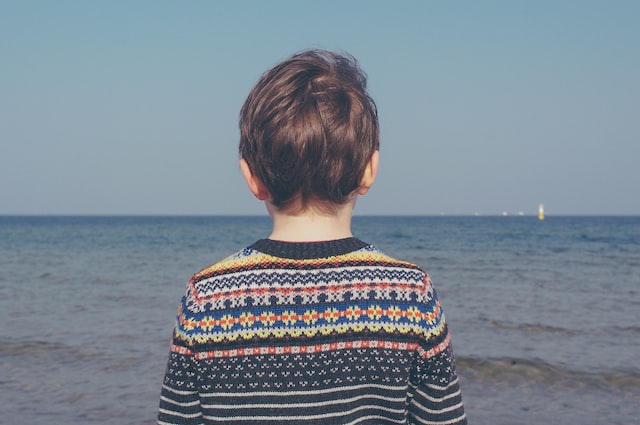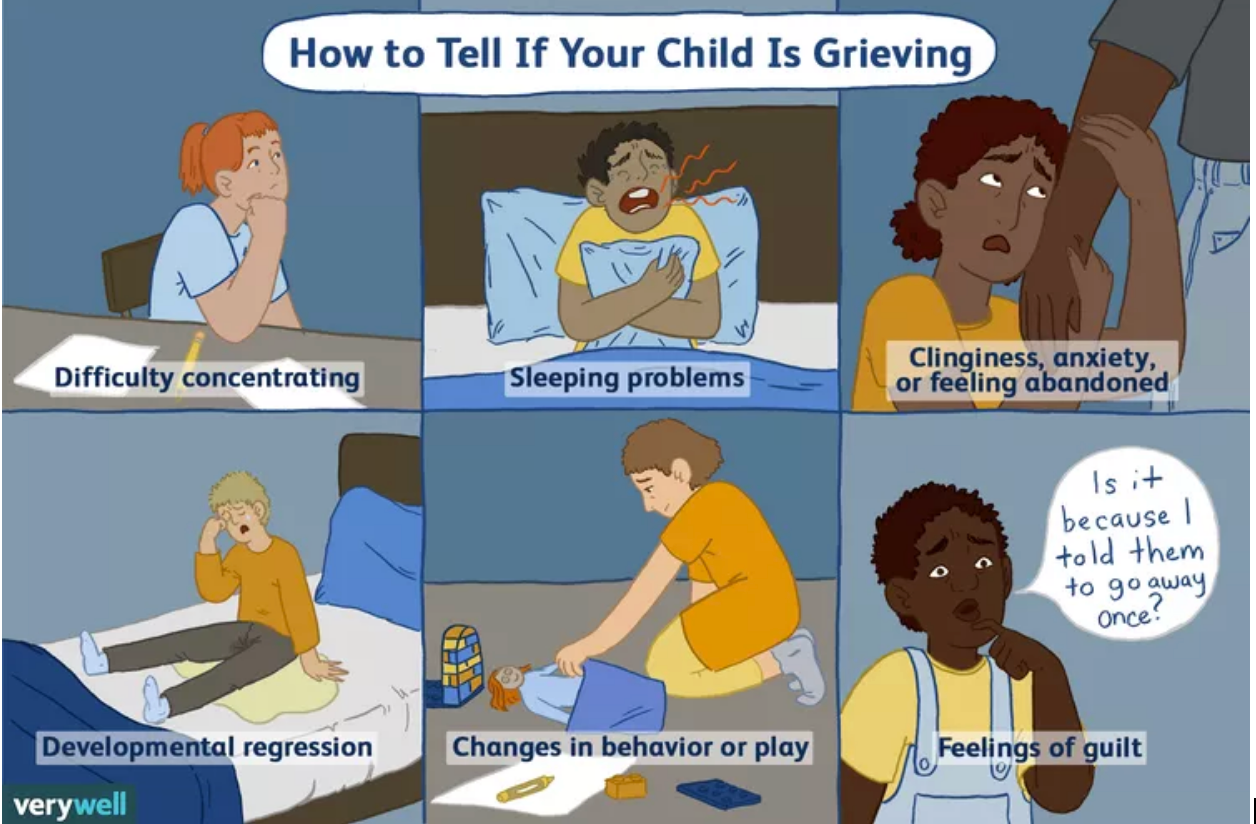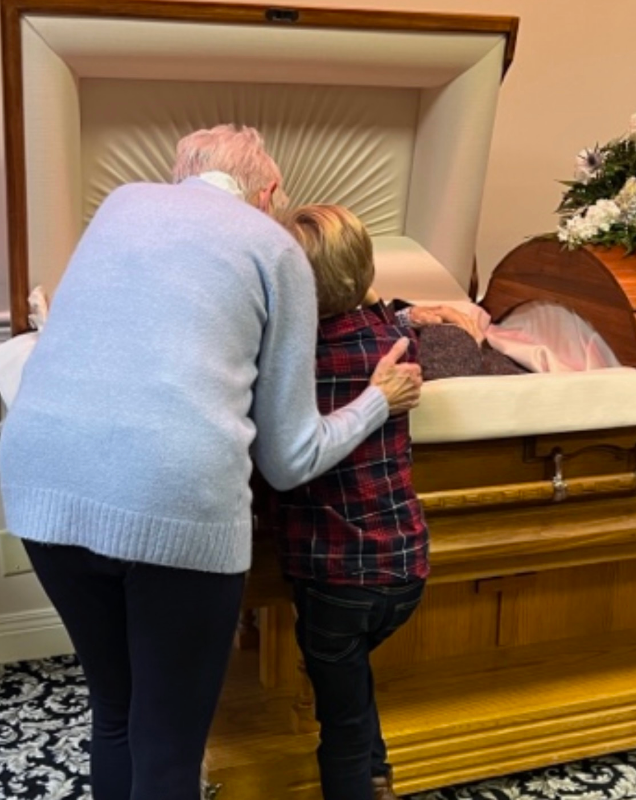
How Loss, Grief, and Death can Affect Children
If your child or a child of someone you know has recently experienced a loss, you might be wondering more about the effects these events can have on a child. How long will they need to grieve? How will they grieve? Will this affect them for the rest of their lives? There are so many questions, and the answers aren’t always easy to come by. However, there are a number of things to think about when it comes to children and dealing with grief and loss.
How the Death of a Parent Affects Children
Death itself is a jarring event. It can easily turn an adult’s life upside down and send anyone into a tailspin of emotions. That is even more true for young children hit by death and loss. It is estimated that about 8% of children in the US experience the death of a parent or sibling by age 18.
That means 5.6 million children and teens in this country are bereaved and walking through loss.
Nearly 80% of those who lost a parent said it was the hardest thing they have ever had to walk through. It can affect their attitude, sleep, behaviors, habits, relationships and perspective on life. A usually well-adjusted, even-tempered kid can quickly begin acting out and misbehaving as their young mind processes the loss. A child who had been sleeping through the night may regress and experience night terrors, insomnia or even bed wetting. A child who normally loves to play with other children may resist play dates and interactions with others and begin to isolate as they navigate their new normal. Losing a parent during a child’s formative years can lead to things like anxiety and depression so be on the lookout for signs and grief symptoms and consider seeking professional help. If the child still has a living parent, that parent can set the stage for the child’s growth, development, and feelings as the family processes their collective grief.

How the Death of a Friend or Extended Family Member Affects a Child
Although the loss might not be as all-encompassing as the death of a parent, a child who loses a friend or extended family member still needs to process through their grief. The depth of the loss depends obviously on the closeness of the relationship. The death of a grandparent who lived far away and wasn’t involved in the day to day life of the child might feel differently than a grandparent who lived in or near the home and was an additional caregiver to the child. A friend from school who passed away may affect the child differently than a best friend who was a constant companion. Whatever form the loss takes, it can have overarching effects on the child’s mental health. One mom shared with me about her experience helping her children deal with loss, writing “A few months ago, my three children lost their grandfather after a four year battle with cancer. They are each grieving in their own ways. At the funeral, my seven year old watched the casket quietly and later told me he asked Jesus to heal his grandad so he could come back and be with us. In the weeks following the funeral, my eleven year old son would weep and needed to be held and snuggled, which was very uncommon for a middle-aged young boy who loves football and rock crawling. Our fourteen year old daughter deals with her grief in a much more private way and occasionally will include herself in conversations and memories of him. Watching and helping each child handle grief is so hard as a mom. Being there for each one of them in a different capacity and helping them navigate their feelings is a task I’m not sure I’ll ever get right. With open communication though, our children are hurting and healing day by day.”
Grieving can be difficult at any age. Here seven year old Cole stands with his grandmother beside his grandfather’s casket.

Put Yourself in their Shoes
Give the grace you would want and expect from others. It can be heartbreaking to watch a child processing such a deep loss, but remember to be patient above all else. What helped soothe and comfort the child yesterday, may not work today. What brought glimmers of joy today may not bring smiles in a week. Everyone grieves in their own way, and their way may not be the same as your way. And that’s okay. Try to carve out time with them and listen to their perspective and how they are feeling at that moment. For many children, bedtime can be a great opportunity to spend some quiet moments asking how their day was and going through “highs and lows.” This can provide great insight into their mental state. Other kids (especially teens) are more likely to talk during a car ride. They are trapped and can’t escape to their room so they might be more likely to share how they are feeling. It also helps some kids not to look adults in the face when they share deep emotions. Kids can get nervous when speaking so avoiding eye contact could actually help communication.
Helping a Child Cope with the Death of a Parent
It’s important to keep the parent’s memory alive by talking about the mom or dad with the child. Make sure to have pictures of them around the house and think of ways to honor their memory. If the loved one died from cancer or a specific sickness, consider encouraging the child to host a lemonade stand with the proceeds going to cancer research. Just like adults, children can benefit from channeling their grief into ways to help others and make a positive difference.
A memento like a necklace with “mom” or “dad” engraved on it or a custom keychain can become a cherished keepsake and help them feel the parent’s presence during hard moments. Also, consider letting them keep an item that belonged to the parent like a sweatshirt or watch. Older children can start journaling. Research suggests expressive writing can dramatically help in processing emotions like grief and sadness. Therapy and grief counseling are valuable tools to consider as well. There may even be grief support groups for children in your area. The key is to let them grieve in their own (healthy) way. Be patient and know everyone goes through the grieving process differently, children included.
Dos and Don’ts of Helping Children Grieve
Dos
- Be patient
- Give them time to process
- Be there for them
- Help them in any way they need
Don’ts
- Become impatient with their grieving process
- Push them to heal faster than they need/want to
- Leave them to cope alone
- Limit the way you offer support and care
Ultimately, children will have to navigate their thoughts and emotions just like adults walking through grief. But it’s our job as “grown ups” to lead them along a healthy path with love, patience and understanding!
Lanna Britt
Lanna Britt was a national news producer in Washington DC for nearly a decade covering politics, breaking news and current events. She now lives with her husband and three children in Richmond VA. She has two sweet babies she’ll meet again in heaven.



















